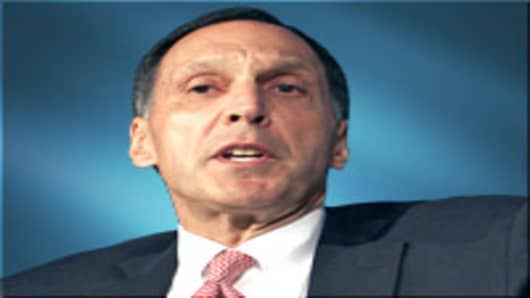The city’s claim is one of the largest among those who have so far sought money from the once-mighty investment house.
Though financial experts say the city stands a good chance of recouping at least some of the money, how much and when is anyone’s guess, given the size and complexity of the bankruptcy proceedings.
Even so, bankruptcy experts who have reviewed the claim — the largest the city has ever made in bankruptcy court — say they are flabbergasted by the size and time span of the allegedly unpaid taxes.
“How did the city get to the point where the city was looking at so many tax years, and so much money?” said Stephen Selbst, a corporate bankruptcy lawyer at Herrick, Feinstein in Manhattan who is representing several Lehman creditors. “It raises a lot of questions.”
Lehman, the city asserts, since 1996 had underpaid its general corporation tax by $615 million, roughly a third of which represents interest. The city also says the firm failed to pay $12 million in commercial rent taxes since 2001.
City officials explained that the claim stems from audits routinely conducted of large businesses. And though the city has discussed the tax shortfall with Lehman since the 1990s, officials dispute the suggestion that they have taken too long to try to collect the money. In fact, the city has stepped up its efforts in the last year to recoup back taxes from large taxpayers and to speed up the audits, said Sam Miller, an assistant commissioner at the Department of Finance.
Mr. Miller declined to provide specifics on what other firms owe in back taxes. But he noted that the auditing process typically nets the city hundreds of millions of dollars a year. Most cases are settled between the city and a company, but the Lehman case became public because of the bankruptcy proceeding.
Audits can be very complicated and take years to resolve, Mr. Miller added, particularly because of the complexity of state tax laws and sometimes because of extenuating factors like concurrent federal audits. But after Lehman declared bankruptcy last fall, the city faced a more urgent need to collect the taxes. The Finance Department filed its claim in bankruptcy court on June 1, well ahead of the Sept. 22 deadline for filing claims against Lehman.
“With bankruptcy proceedings under way, it is important to make sure the city is in a proper position to collect these funds,” Mr. Miller said. “This is the best and safest action we can take to protect the city’s interests.”
The city’s claim is one of many already submitted, according to a Web site that compiles Lehman claims. Some experts question whether the city was too lax in pressing Lehman to pay its taxes because Mr. Bloomberg has long been a staunch defender of the financial services industry.
“It makes you wonder whether there was a wink-wink-nudge-nudge arrangement because of how important Wall Street is to the city,” said David A. Skeel Jr., a professor of corporate law at the University of Pennsylvania. “It may have made sense for the city not to hold the reins too tightly.”
One New York State official familiar with the claim, speaking on condition of anonymity because of the litigation, added: “Obviously there could have been more action on this earlier. Someone wasn’t watching it.”
But Mr. Miller rejected such a notion. "We have vigorously pursued the taxes owed by Lehman and other financial-services firms," he said. "Two years ago, after we clarified our audit rules, we closed seven audits of large financial-services firms and collected $581 million."
Lehman has not yet responded to the city’s claim and Kimberly Macleod, a spokeswoman for Lehman, declined to comment, citing the litigation.
In bankruptcy cases, there are generally three classes of claimants. The first group includes those who have secured claims, like liens or mortgages. The second group includes so-called priority creditors, who usually have tax claims. The third group includes general creditors, with claims ranging from catering charges to utility bills. New York City is claiming that it belongs in the first (or, at worst, second) category. But bankruptcy experts say that the city’s claim could be undermined or even rejected based on any number of factors.
The city’s claim could be bumped down the line for instance, if another creditor objected to the city’s attempt to move up the line of creditors.
CNBC Slideshows
“I think people are going to look at it and say, ‘Look, we don’t want to see $700 million get paid out ahead of us,’ ” Mr. Selbst said.
Though Professor Skeel believes the city has a “significant chance of recovery,” he said the city may not get as much as it seeks.
The city could certainly use the money. Last year, it was forced to refund more than $800 million to companies that overpaid their estimated taxes based on expectations of a more robust business performance.


